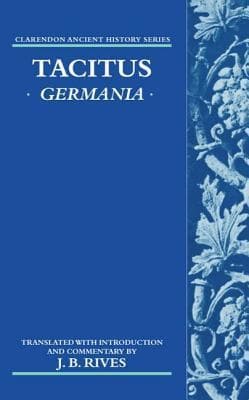
Book Review Summary: Germania
Introduction
"Germania" by Tacitus is a seminal work that provides an extensive account of the ancient Germans during the Roman period. It has been relatively neglected in the scholarship of the English-speaking world despite its importance. This article will delve into the book's author, Tacitus, and analyze the views of readers regarding "Germania." We will also explore the reasons for recommending and not recommending this book.
About Tacitus
Publius (or Gaius) Cornelius Tacitus (ca. AD 56 – ca. AD 120) was a senator and historian of the Roman Empire. He is best known for his two major works, "The Annals" and "The Histories," which cover the reigns of Roman Emperors Tiberius, Claudius, Nero, and those who ruled during the Year of the Four Emperors. Tacitus also wrote about oratory, Germania, and biographical notes about his father-in-law Agricola. He was an author who wrote during the Silver Age of Latin literature.
Analysis of Views
-
Interesting Insights into Germanic Lives and Traditions: Many readers found the first part of "Germania" to be more engaging than they expected. They appreciated Tacitus' ability to provide insight into the lives and traditions of the Germanic populations, highlighting their advanced and underdeveloped aspects.
-
Comparisons to Modern Perceptions: Some readers noted that Tacitus' portrayal of the Germans was similar to modern perceptions of them as a reserved, cold, and orderly nation with a tendency towards aggression. However, they also observed that Tacitus did not idealize the warrior nobility aspect of Germanic culture as much as some later literature would suggest.
-
Detailed Description of Germanic Tribes: Readers were fascinated by Tacitus' detailed descriptions of early "barbarian" German tribes, including their dress, warfare, spirituality, domestic life, and customs. They found it intriguing to learn about their laws and customs, even if they considered them barbaric due to human sacrifices.
-
Roman Perspective on Germany: "Germania" offers a unique perspective on Germany during the Roman Empire. Readers appreciated Tacitus' praise for German monogamy and his description of their laws and customs. However, they also noted that Tacitus' portrayal of Germany was influenced by his Roman perspective.
-
Engaging Writing Style: Many readers found Tacitus' writing style to be engaging and impressive for a text that is over 2000 years old. They appreciated his use of common sense and rationality in describing the Germanic peoples and their customs.
Reasons for Recommendation
-
Comprehensive Guide to Ancient Germany: Readers recommend "Germania" as a comprehensive guide to the relevant textual and archaeological evidence related to ancient Germany during the Roman period. The book provides valuable insights into the lives and traditions of Germanic populations, making it a valuable resource for those interested in ancient history.
-
In-Depth Analysis of Methodological Issues: The book not only presents information about ancient Germany but also examines the methodological issues involved in interpreting Tacitus' work. This makes it a valuable resource for scholars and students interested in historical methodology and interpretation.
-
Engaging Writing Style: Tacitus' engaging writing style makes "Germania" accessible and enjoyable for readers who may not have a background in ancient history or Latin literature. The book's ability to convey complex information in a clear and concise manner is highly appreciated by readers.
Reasons for Not Recommendation
-
Limited Availability of Commentary: Some readers expressed disappointment with the lack of commentary or annotations in certain editions of "Germania." They felt that additional context or explanation would have enhanced their understanding of certain passages or concepts.
-
Vagueness and Limited Material: A few readers found certain parts of "Germania" to be vague or lacking in material for further learning. They felt that without commentary or additional resources, they were unable to fully grasp certain aspects of the text. However, it should be noted that these criticisms were directed towards certain editions or translations rather than the original work itself.
Conclusion
"Germania" by Tacitus is a valuable resource for those interested in ancient history and the study of ancient Germany during the Roman period. It provides a comprehensive guide to the relevant textual and archaeological evidence while examining methodological issues involved in interpreting this important work. The book's engaging writing style and detailed descriptions of Germanic tribes make it accessible and enjoyable for readers with varying levels of familiarity with ancient history or Latin literature. While some readers expressed disappointment with certain editions or translations, overall "Germania" is recommended for its valuable insights into ancient German culture and its historical significance.